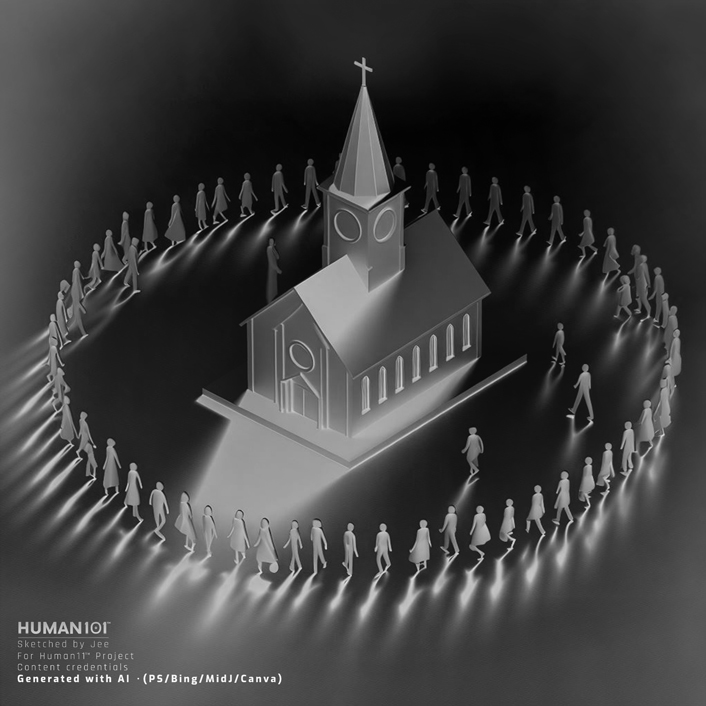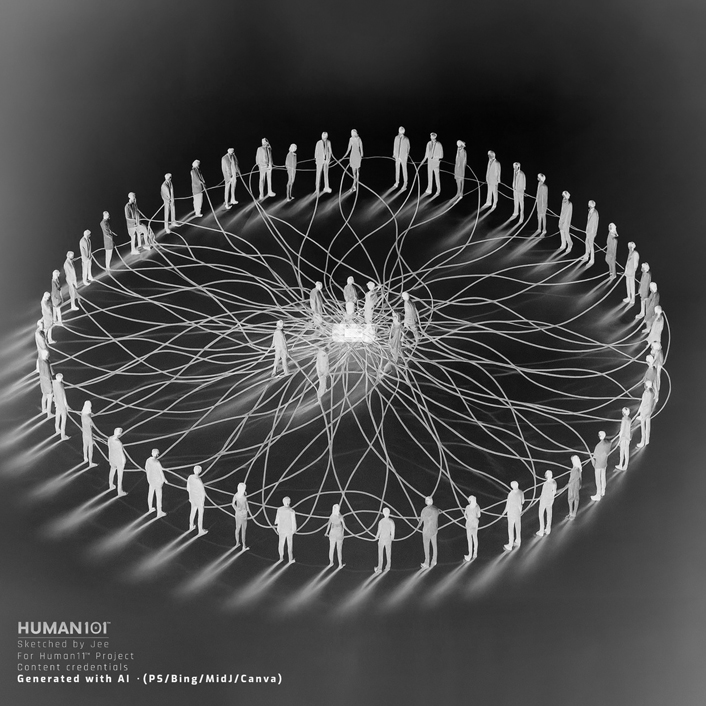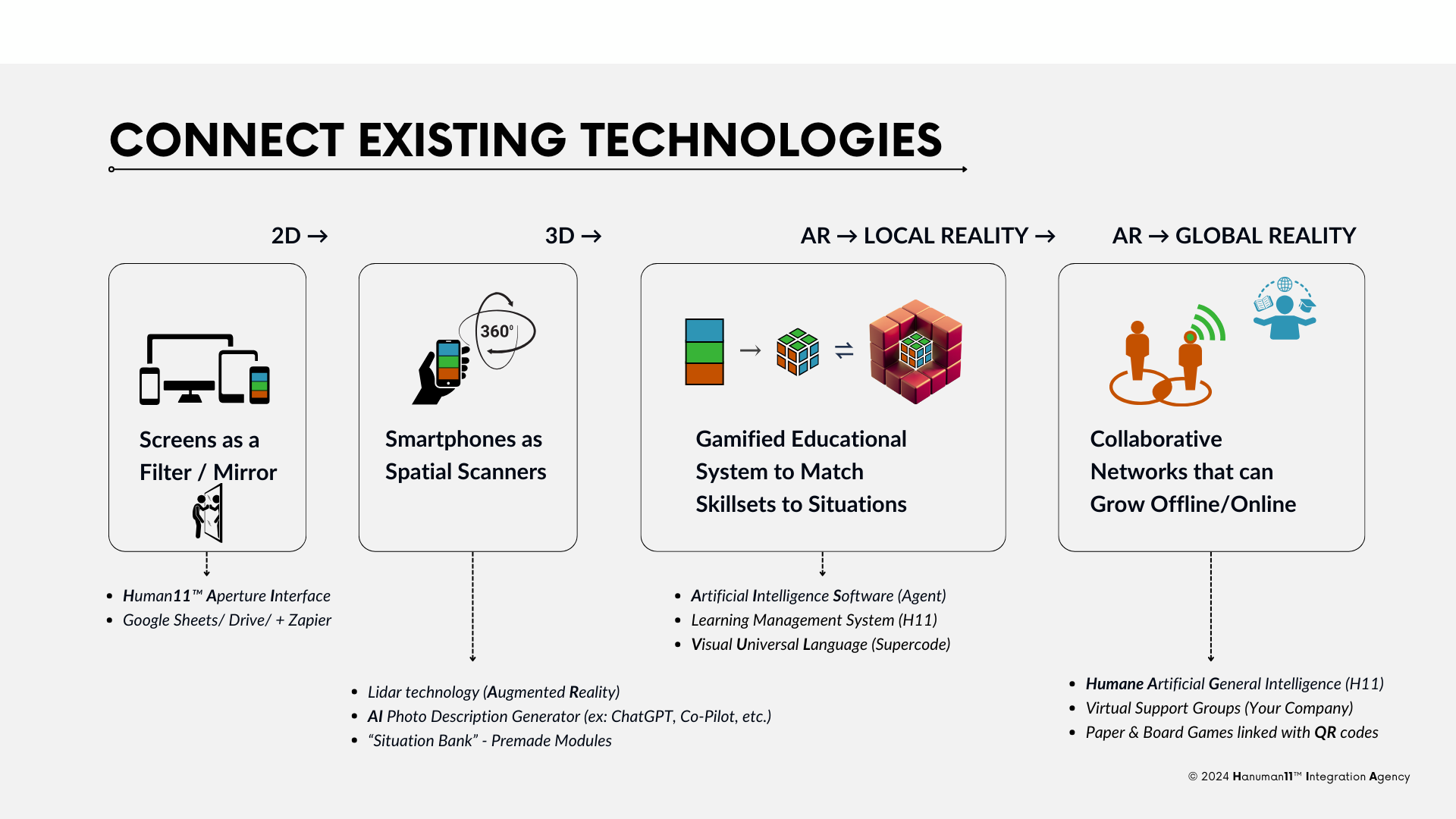In the age of artificial intelligence, convenience has never been more abundant—and disorientation has never felt more familiar. We’ve built powerful systems of operation—governments, markets, platforms, apps—but we rarely stop to ask: Where are we in all of this? Where are we going? Who’s holding the map? Who's even holding the keys? Who is driving?

We’re surrounded by devices more powerful than what launched the first space missions, yet somehow still feel disoriented. Disconnected. Overstimulated. Under-supported. We've been promised convenience, but what we've inherited instead is a constant stream of notifications, digital chores, and social pressure—with very little context or personal agency.
Welcome to the age of contrast. A time when our systems are optimized for strategic performance but not for authentic presence. When urgency outpaces understanding. And when the deepest power we hold—our attention—is entangled in a feedback loop with a monetary system that only knows how to track contrast, not context. The consequence seems to be a global addiction to intensity and drama...
This introduction is about a way through. A way forward.
Let’s begin by talking about the mainstream ideas vs the dormant systems.
Rethinking the Digital ID
One of the most widely discussed solutions today is the digital ID: a unique, encrypted identity that gives "access" to voting, healthcare, education, finance, and more. On the surface, it sounds efficient. But when we look deeper, the risks emerge: surveillance, centralization, energy dependence, and increasing inequality. Giving away too much control to large systems can quietly reduce our freedom. And underneath it all, we still lack systems that honor logic, intuition, and the intangibles of being human—systems that help us trust both ourselves and each other.
Because the truth is, many of us don’t even trust ourselves fully. Trusting others? Entire systems? That feels out of reach.
What we need isn't more control—but more orientation.
The Attention-Money Feedback Loop
Let’s unpack a core dynamic: our monetary systems measure value using contrast—numbers, comparisons, reactions. The more attention something gathers, the more valuable it becomes.
Attention becomes currency. But not the kind that deepens us. It gets spent on urgency, not understanding. We are training generations to make as much money as possible, regardless of how it's made.
And when everything runs on contrast, we stay locked in reactivity: us vs. them. For or against. Survive or lose.

That’s how we’ve built our systems—on the visual equivalent of rods, the part of the eye tuned to contrast and movement. Emergency mode.
But there’s another part: the cones.
The part tuned to color, nuance, spatial reasoning.

Simpler, Lighter Identity Tools
Instead of doubling down on heavy, energy-intensive systems of control, what if we embraced lighter, decentralized alternatives?
A self-managed dataset. Peer-to-peer verification. A digital identity that’s a handshake, not a handcuff. Something that verifies enough to enter, but not enough to imprison. Minimal data. Maximum agency.
And most importantly: a system built not just to operate—but to orient.
From Contrast to Context
If we’re going to evolve how we live, think, and coordinate, we have to go from rods to cones. From contrast to context. From surface metrics to spatial awareness.
Our current systems are flat. Linear. Binary. What we need are spatial systems—tools that let us navigate multiple dimensions of reality at once: physical, emotional, social, systemic.
This means integrating x, y, z axes—along with a fourth layer: the relationship between 1 and 0. The self and the system.
We already have the tools to begin. The hold the first one in our hands.🪬📲
The Phone as a Tricorder
Almost everyone has a smartphone—more than 6.9 billion in circulation. But instead of using them to pause and reflect, we scroll and react.
Our phones are distraction machines powered by advertising algorithms. But what if they became tricorders—tools that let us scan ourselves and our environment?
- 🟥 Red: Body. Am I grounded? → Physical state. Survival needs.
- 🟩 Green: Heart. Am I open and connected? → Emotional openness. Relational alignment.
- 🟦 Blue: Mind. Am I clear and oriented? → Clarity. Spatial reasoning. Direction.
We don’t need biometric precision. What we need is honest input. This RGB check-in system uses abstraction, not accuracy, so lying (and ignorance) is ultimately acceptable...but learning about this system showcases the benefits of honest assessment. Blurry data is still real data. It offers orientation.
And when we pair this inner data with external context—time, place, needs—we get something new:
Hypermatching
→ Imagine a world that ran on vision board data (images), not just stock markets (metrics).
Hypermatching is how we align with opportunities, people, and places—not just through hard facts, but through meaning, resonance, and readiness. It blends sharp data (like price and availability) with blurry data (like feeling, longing, potential).
We can stop chasing salaries and status. We can start finding lifestyles that match our energy.
Vision boards become more than daydreams—they become dynamic datasets of who we are and where we’re headed. These can be matched with environmental data to suggest placements that feel both real and right.
Instead of optimizing productivity, we’re orienting to placement—discovering not just what to do, but where we fit best.
We begin to see coincidences as part of a pattern—not magic, but entangled relevance.
This is the real power of abstraction data: it captures the unspoken, the impressionistic, the emerging. And when layered with clear signals, it unlocks hypermatching—a new way of aligning the self with the world.
Orientation Before Operation
This is where the secondary systems come alive.
We don’t need to throw away technology. We need to reframe it.
We start with orientation—simple tools that help us reflect before we react. These tools become the foundation for everything that follows: alignment, coordination, and eventually, co-creation.
- 🟥 At Human101™️club, we begin with red—the body. Check-ins. Grounding. Pausing before giving away our attention.
- 🟩 Then comes H11 Life—green. Lifestyle alignment based on resonance and meaning.
- 🟦 Then Human11™️—blue. A visual interface for modeling complexity and seeing your thoughts in space.
These layers form the foundation of a secondary system: not just data collection, but reflection. Not just action, but integration.
The key isn’t something we buy. It’s something we co-create. Together.

Reframing 1 and 0
We often see 1 and 0 as binary. But in this system:
- 1 is the individual. Presence. Agency.
- 0 is the constellation. The field. The unseen context.
And when we rotate the 0, it becomes a 1. A circle becomes a line. A loop becomes a path. This is more than symbolism. It’s a map. It shows us how to go from feeling stuck in loops to standing in our place of power. We shift from scrolling to seeing. From reacting to reasoning. From being managed to self-orienting.
Here, ontology (the study of being) meets system constellations (the mapping of invisible patterns). And while Human101 can’t explain it all in one post, it gives us a door. A place to begin.
The Structure of the human101 Club
While we’ve shared colors before—Red, Green, Blue—the actual structure of Human101 is nonlinear.
We don't start with grounding, but with dreaming:
- Dream Coders (Green): “Unlock the power of your deepest aspirations.”
- Mentors (White): “Envision your dream from multiple angles to establish your principles.”
- Builders (Blue): “Take meaningful steps guided by those principles.”
- Investors (Red - VR Crown): “Ground your principles in reality through shared vision and collective intelligence.”

It starts with the heart. Because that’s where inner vision begins. From there, we clarify, build, and eventually root it into action. Once you’ve seen from the top, you can return to any layer with greater awareness. The path for this baseline system isn’t a staircase. It’s a circle.
An Invitation to Research
If all of this sounds fascinating but vague—that’s because it needs to be. And maybe it should be.
These are not ideas to consume. They’re systems to explore and learn for yourself.
The Human101 Patreon Club is a living research lab. A place where curious minds gather to make sense of what’s emerging.
It’s not about profit, performance, or power. It’s about getting oriented.
Together, we learn. We reflect. We build.

The Power Is Still in Your Pocket
It’s easy to feel small in a world of big systems. Rent is rising. Food is expensive. Algorithms seem to know more about us than we do.
But we haven’t lost our power. We’ve just been scanning the wrong signals.
Our phones, our minds, our presence—they’re the tools. The mirrors. The keys.
This isn’t about resisting AI. It’s about teaching it. Reflecting it. Coordinating it with the depth of human context.
It starts with turning on the secondary systems.
Not perfectly. Not all at once. But gently. Clearly. Together.
The future isn’t about winning the race, or dominating the game.
It’s about remembering where we stand.
And using the key we already hold.
.png)

.png)






















.png)
























